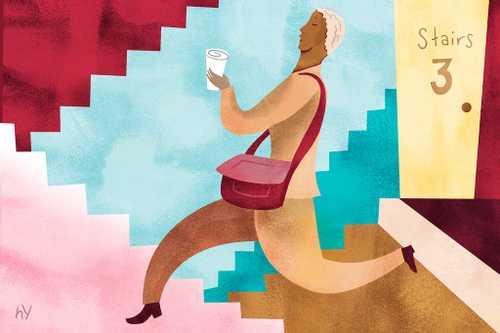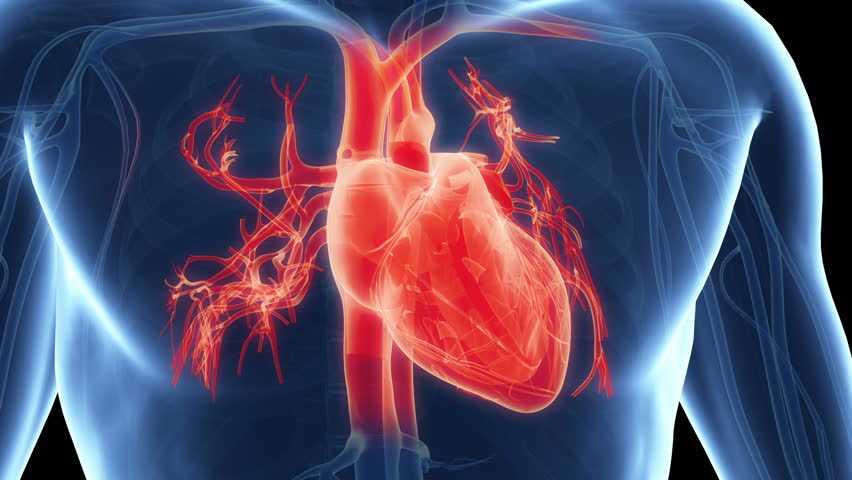Explore the World's Best Ideas
Join today and uncover 100+ curated journeys from 50+ topics. Unlock access to our mobile app with extensive features.
Take Control Of Your Health
Heart disease and strokes are the number one cause of death worldwide. However, almost 80 percent of all cases of cardiovascular disease is preventable.
Making some changes to your lifestyle can lower the risk of heart disease.
193
1.51K reads
The Impact Of Regular Exercise On Our Health
Exercise is the one thing that can improve nearly every aspect of your health.
Extensive studies have found that exercise enhances the cardiorespiratory system, increases HDL cholesterol, lowers triglycerides, reduces blood pressure and heart rate, lowers inflammation, and improves blood sugar control.
200
1.1K reads
Exercise: What To Aim For
Research has shown that even a few minutes of exercise leads to benefits.**It’s all about increasing the intensity.**
The ideal exercise for adults are :
- 150 minutes of moderate-intensity aerobic exercise a week, such as running, swimming, brisk walking, cycling, tennis, and doing yark work.
- 2 sessions of about 30 minutes of resistance training a week. Examples include resistance bands, bodyweight exercises like yoga, push-ups and sit-ups, and heavy gardening.
For more intense workout sessions, you should aim for:
- 75 minutes of vigorous aerobic exercise a week.
- 2 sessions of at least 30 minutes resistance training.
- High-intensity exercise should get your heart rate up to 70 to 85 percent of your maximum heart rate.
263
1.03K reads
Get Your Blood Pressure Checked
- High blood pressure puts mechanical stress on the walls of your arteries, making them to narrow and harden. Stress can increase the development of plaque and cause your heart muscle to weaken over time.
- Your blood pressure should be no higher than 120/80. The top number (systolic) is the pressure when your heart is contracting. The lower number (diastolic pressure) is when your heart is at rest.
- You're at greater risk if you are older, have diabetes, have complicating conditions such as sleep apnea, kidney disease, obesity, high levels of stress, or heavy alcohol consumption.
192
689 reads
How to Lower Your Blood Pressure
- Lose weight. Excess weight increases the amount of work your heart has to do to pump blood throughout your body.
- Watch your alcohol intake. Try to consume no more than two drinks a day.
- Exercise. Both aerobic exercise and resistance training significantly lower blood pressure.
- Moderate your salt and sugar intake. Keep your salt intake to no more than five grams per day. A high sugar intake is also linked to hypertension.
189
609 reads
Know Your Cholesterol
Cholesterol plays a big role in heart disease. The heart association recommends getting your cholesterol levels measured every four to six years.
- HDL cholesterol. Higher HDL levels are considered better for cardiovascular health.
- LDL cholesterol. High LDL is linked to heart diseases and low LDL with cardiovascular health.
- Triglycerides. This is a type of fat in your bloodstream. High numbers of triglycerides are linked to both heart disease and diabetes.
193
570 reads
Eat Your Way to a Lower Cholesterol
Many foods can improve your cholesterol levels. They include:
- Fatty fish, which lowers LDL cholesterol and triglycerides.
- Walnuts, almonds, and other nuts. They increase HDL and lower LDL cholesterol.
- Soybeans, tofu, and soy milk slightly lower LDL.
- Apples, strawberries, and citrus fruits contain pectin, which helps to reduce LDL.
- Olive oil and unsaturated fats.
- Beans, vegetables, and flaxseeds contain a lot of soluble fiber and may lower LDL.
- Triglycerides are driven mostly by empty carbs. Removing sugar, bread, pasta, fruit juices, and other refined carbs from your diet should lower your triglycerides.
213
595 reads
Know Your Blood Sugar Level
A high fasting blood sugar level can indicate Type 2 diabetes or pre-diabetes. People with diabetes are four times more likely to die from heart disease.
An A1C test indicates your average blood sugar levels over time. It measures the amount of glycated hemoglobin in your blood, which shows your average blood sugar levels over the past three months.
- An A1C score below 5.7 is normal.
- A score between 5.7 and 6.4 is indicative of pre-diabetes.
- A score of 6.5 or above indicates diabetes.
185
423 reads
How to Lower Your Blood Sugar
Aside from a medical issue, you can do two things to improve your blood sugar control: exercise and eating smart.
Things that can contribute to chronically high blood sugar or throw off a test are:
- A lack of sleep
- Being overweight or obese
- Consuming alcohol or caffeine.
- Birth control pills, antidepressants, nasal decongestants and other medications.
- Hormonal changes during menstrual cycles.
- Chronic stress or illness.
188
600 reads
A Healthy Heart Diet
- Foods that are good for your heart: nuts, seeds, legumes, whole grains, avocados; fruits and vegetables; seafood, especially oily fish like wild salmon, sardines, and mackerel; fermented foods like yogurt, kimchi, and tempeh; healthy fats like olive oil.
- Foods that negatively impact cardiovascular health: Foods with added sugar, such as soft drinks, fruit juices, and candy; refined carbohydrates found in breakfast cereals, granola, white bread, and pasta; processed meats such as salami, hot dogs, and ham; packaged foods loaded with salt, sugar, trans fats, preservatives, and artificial ingredients. Examples include potato chips, chicken nuggets, canned soups, instant noodles, and boxed snacks.
221
664 reads
Maintain a Healthy Bodyweight
- Excess body fat cells release many substances that increase inflammation, promote insulin resistance, and contribute to the hardening of arteries.
- Visceral fat - the type that collects deep inside your abdomen around your internal organs - is more toxic to your cardiovascular system than subcutaneous fat, the kind that sits just below your skin.
- The amount of visceral fat you carry can be determined by measuring your waist circumference. Women at high risk have a waist circumference of 35 inches or greater, and men with a waist circumference above 40 inches are at a greater risk.
190
505 reads
Quit Smoking
Smoking is the most common cause of heart disease. Smoking causes emphysema, cancer, gum disease, and harms almost every organ in your body. Tobacco smoke damages blood vessels, increases blood pressure, lowers HDL cholesterol, and causes peripheral artery disease and atherosclerosis.
Quitting will immediately lower your risk of a heart attack.
187
920 reads
Alternative Ways to Boost Your Cardiovascular Health
- Get a pet. Dogs, in particular, have shown to lower your risk of heart disease.
- Reduce stress. Chronic stress can damage your immune system, increase your risk of high blood pressure, and eventually contribute to heart attacks and strokes.
- Optimize your sleep. Sleep disorders, like sleep apnea, is strongly linked to heart disease. A good night's rest can protect your heart.
- Meditate. While research is not clear, there is some evidence that meditation can lower blood pressure.
- Dental checkups. Many studies have found that gum disease increases your likelihood of having heart disease.
- Drink tea. Studies show that tea contains potent compounds that lower inflammation, protect the endothelial cells that line the arteries, and positively affect blood lipids.
- Drink wine, especially red wine. It improves HDL cholesterol. But it should still be limited to one drink a day for women and two for men.
- Taking a walk in the forest among trees and plants promotes relaxation. Plant compounds circulating in the forest air may also provide health benefits.
210
557 reads
IDEAS CURATED BY
Passionate tv nerd and lifelong web junkie. I love sleeping. Sleeping is a science and I study it.
Alexandra 's ideas are part of this journey:
Learn more about health with this collection
How to prioritize self-care in the workplace
How to adapt to new work arrangements
How to maintain work-life balance
Related collections
Similar ideas
Read & Learn
20x Faster
without
deepstash
with
deepstash
with
deepstash
Personalized microlearning
—
100+ Learning Journeys
—
Access to 200,000+ ideas
—
Access to the mobile app
—
Unlimited idea saving
—
—
Unlimited history
—
—
Unlimited listening to ideas
—
—
Downloading & offline access
—
—
Supercharge your mind with one idea per day
Enter your email and spend 1 minute every day to learn something new.
I agree to receive email updates

